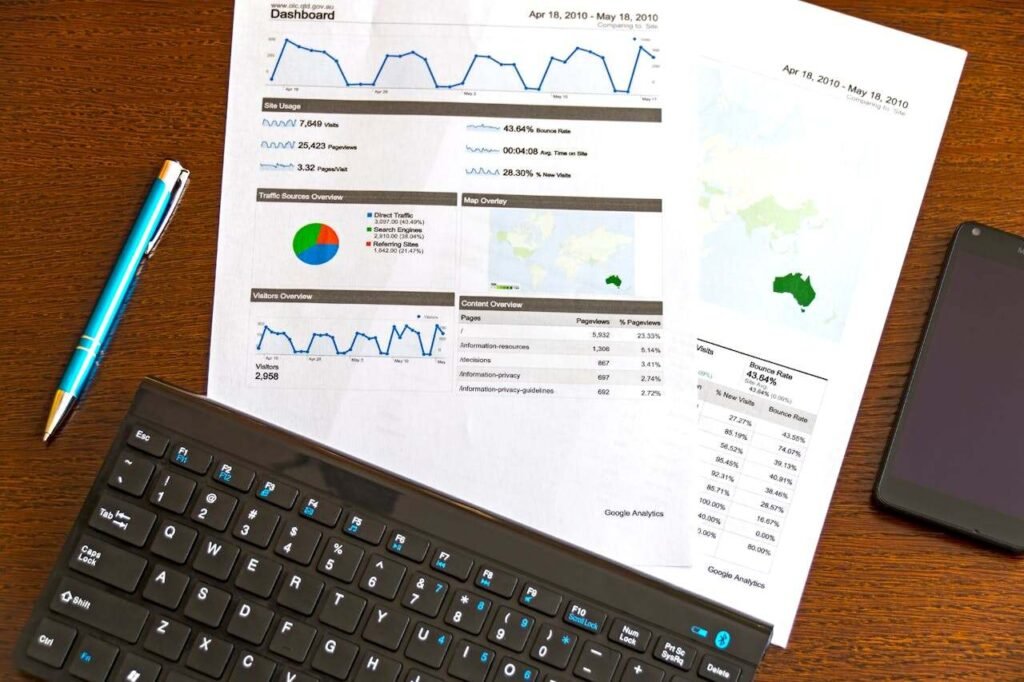In today’s digital age, promoting a travel agency requires more than just beautiful brochures and eye-catching storefronts. It’s about creating an online presence, engaging with potential travelers, and offering them experiences they’ll cherish. Whether you’re a small boutique travel agency or a larger operation, finding the right marketing strategies can help you stand out in a crowded market.
Understanding Your Target Audience
Before you start marketing, it’s crucial to understand who your target audience is. Knowing their preferences, interests, and pain points will allow you to tailor your marketing efforts to meet their needs.
Demographics and Psychographics
Identify the age, gender, income level, and lifestyle of your ideal customers. Are they adventure seekers, luxury travelers, or budget-conscious tourists?
Understanding these aspects will help you create personalized marketing messages that resonate with them.
Travel Habits and Preferences
Research the travel habits of your audience. Do they prefer domestic or international travel? Are they looking for weekend getaways or extended vacations?
By understanding their preferences, you can offer packages that cater to their specific desires.
Creating Detailed Customer Personas
Develop detailed customer personas to represent the different segments of your target audience. Each persona should include demographic information, travel preferences, booking behavior, and pain points.
For instance, one persona might be a young professional seeking adventure travel, while another could be a retired couple looking for luxury cruises. Use these personas to guide your marketing strategies and ensure that your messaging resonates with each segment.
Conducting Surveys and Focus Groups
Direct feedback from your customers can provide deeper insights into their preferences and expectations.
Conduct surveys and focus groups to gather qualitative data. Ask questions about their travel habits, favorite destinations, decision-making processes, and what they look for in a travel agency.
Use this feedback to refine your services and marketing messages to better align with their needs.
Monitoring Social Media Conversations
Social media is a treasure trove of information about your target audience. Monitor conversations and trends on platforms like Facebook, Instagram, and Twitter. Pay attention to the hashtags your audience uses, the travel-related content they engage with, and their comments and reviews.
This can help you understand their interests and concerns, allowing you to create more relevant and engaging content.
Segmenting Your Audience
Segmenting your audience allows you to tailor your marketing efforts to different groups within your customer base. You can segment based on factors such as age, travel preferences, geographic location, and booking behavior.
For example, you might create separate campaigns for millennials interested in backpacking trips and families looking for all-inclusive resorts.
Tailored messaging can increase the relevance and effectiveness of your marketing efforts.
Understanding Seasonal and Cultural Influences
Travel preferences can vary significantly based on seasonal and cultural factors.
For instance, families may prefer vacationing during school holidays, while certain destinations may be more popular during specific seasons. Additionally, cultural events and festivals can influence travel decisions.
Stay informed about these trends and incorporate them into your marketing strategies. Promote relevant destinations and packages during peak seasons and cultural events to capture your audience’s interest.
Tracking Competitor Strategies
Analyzing your competitors can provide insights into what works and what doesn’t in your industry. Track their marketing campaigns, customer reviews, and social media activity.
Identify their strengths and weaknesses, and look for gaps in their offerings that you can fill.
Understanding how your competitors engage with their audience can help you differentiate your agency and offer unique value propositions.
Emphasizing Emotional Triggers
Travel decisions are often driven by emotions. Understanding the emotional triggers that motivate your audience can help you craft compelling marketing messages. For instance, some customers may be driven by a desire for adventure and exploration, while others may seek relaxation and luxury.
Highlight the emotional benefits of your travel packages, such as the thrill of discovering new cultures or the joy of creating lasting memories with loved ones.
Personalizing Marketing Messages
Personalization is key to engaging your audience and building strong relationships. Use the data and insights you’ve gathered to personalize your marketing messages.
Address customers by their names, recommend destinations based on their past travels, and send tailored offers and promotions. Personalized communication shows that you understand and value your customers, increasing their likelihood of booking with your agency.
Analyzing Customer Data
Leverage data analytics to gain insights into your customer base. Use tools like Google Analytics, CRM software, and social media analytics to gather data on your audience’s behavior.
Track metrics such as demographics, booking history, and engagement patterns.
This data can reveal valuable trends and preferences, helping you to tailor your marketing efforts more effectively.
Creating a Compelling Online Presence
In the digital age, your online presence is your storefront. Here’s how to make it shine.
Website Optimization
Your website is often the first point of contact for potential customers. Ensure it is visually appealing, easy to navigate, and mobile-friendly.
Include high-quality images, engaging content, and clear calls-to-action (CTAs). Make sure your booking system is seamless and user-friendly.
Search Engine Optimization (SEO)
Optimize your website for search engines to increase your visibility. Use relevant keywords, create high-quality content, and ensure your site loads quickly.
Regularly update your blog with travel tips, destination guides, and customer testimonials to attract organic traffic.
Social Media Engagement
Leverage social media platforms like Instagram, Facebook, and Twitter to engage with your audience. Share stunning photos, travel stories, and behind-the-scenes content.
Use hashtags strategically to reach a broader audience and encourage user-generated content by running photo contests or asking customers to share their travel experiences.
Leveraging Content Marketing
Content marketing is a powerful tool to establish your travel agency as an authority in the industry and attract potential customers.
Blogging
Create a blog on your website and regularly publish articles about travel tips, destination highlights, and industry trends. Offer value by providing insights and advice that your audience will find useful.
This not only drives traffic to your site but also builds trust with your audience.
Video Marketing
Videos are incredibly engaging and can showcase the experiences your travel agency offers. Create short videos highlighting different destinations, customer testimonials, and travel tips.
Share these on your website, YouTube channel, and social media platforms to reach a wider audience.
Email Marketing Campaigns
Email marketing remains one of the most effective tools for engaging with potential and existing customers. When executed strategically, it can significantly boost your travel agency’s bookings and customer loyalty.
Here’s how you can enhance your email marketing campaigns to maximize their impact.
Segmenting Your Email List
Segmentation allows you to tailor your messages to specific groups within your email list.
By categorizing subscribers based on demographics, travel preferences, past booking behavior, and engagement levels, you can send more relevant and personalized content.
For example, you can create segments for adventure travelers, luxury seekers, or frequent business travelers, and tailor your offers and content to each group’s specific interests and needs.
Crafting Compelling Subject Lines
The subject line is the first thing your recipients see, and it determines whether they will open your email. Craft compelling and intriguing subject lines that grab attention and spark curiosity. Use action words and create a sense of urgency or exclusivity.
For example, “Explore the Hidden Gems of Bali – Limited Time Offer!” is likely to draw more opens than a generic subject line.
Personalizing Email Content
Personalization goes beyond using the recipient’s name. Use data from your CRM to tailor the content of your emails to individual subscribers. Recommend destinations based on their past travels, highlight deals that match their preferences, and send personalized travel tips.
Personalized content increases engagement and conversion rates, as it resonates more deeply with the recipient.
Using Automated Drip Campaigns
Automated drip campaigns can nurture leads and guide them through the customer journey. Set up automated sequences for different purposes, such as welcoming new subscribers, following up on abandoned bookings, or promoting seasonal offers.
Drip campaigns keep your audience engaged over time and move them closer to making a booking decision.
Utilizing Influencer Marketing

Influencer marketing can significantly boost your travel agency’s visibility and credibility by leveraging the reach and trust of popular travel influencers.
Identifying the Right Influencers
Look for influencers who align with your brand values and target audience. They should have an engaged following that matches the demographics of your ideal customers.
Micro-influencers (those with smaller but highly engaged audiences) can often provide better ROI than celebrities.
Building Partnerships
Reach out to influencers with a personalized message, proposing a partnership. Offer them free trips or exclusive experiences in exchange for promoting your travel agency on their social media platforms.
Ensure the content they create is authentic and aligns with your brand message.
Hosting Events and Webinars
Hosting events and webinars can help you connect with potential customers on a personal level and showcase your expertise in the travel industry.
Local Events
Organize local events like travel fairs, informational sessions, or meet-and-greet events with travel experts.
These events can help build a local customer base and create buzz around your agency.
Online Webinars
Conduct webinars on topics like travel planning, destination highlights, or travel safety tips. Promote these webinars through your website, social media, and email campaigns.
This not only positions your agency as a knowledgeable resource but also allows you to collect leads from attendees.
Leveraging User-Generated Content
User-generated content (UGC) is a powerful way to build trust and authenticity for your travel agency.
Encouraging Reviews and Testimonials
Encourage your satisfied customers to leave reviews and testimonials on your website, Google, and travel review sites like TripAdvisor.
Highlight these positive reviews on your website and social media to build credibility.
Sharing Customer Experiences
Ask customers to share their travel photos and stories on social media, tagging your agency.
Feature these stories on your social media channels and website to showcase real experiences and build a community around your brand.
Engaging with Local Communities
Building relationships within your local community can enhance your reputation and generate word-of-mouth referrals.
Partnering with Local Businesses
Collaborate with local businesses like hotels, restaurants, and attractions to create joint marketing campaigns.
Offer special packages that include services from these partners, providing a comprehensive travel experience for customers.
Supporting Local Causes
Show your commitment to the community by supporting local causes and events. Sponsor community events, participate in local fairs, or donate to local charities.
This not only boosts your brand image but also helps you connect with potential customers on a personal level.
Running Targeted Ad Campaigns
Paid advertising can be an effective way to reach a larger audience and drive traffic to your website.
Identifying Your Target Audience
Before launching any ad campaign, it’s essential to have a clear understanding of who your target audience is.
Use the data and insights you’ve gathered to create detailed profiles of your ideal customers. Consider factors such as demographics, travel preferences, past booking behavior, and online activity.
This will help you tailor your ad content and targeting parameters to reach the right people.
Choosing the Right Platforms
Different advertising platforms offer unique benefits and targeting options. Select platforms that align with your audience’s habits and preferences. Facebook and Instagram are excellent for visual storytelling and reaching a broad audience, while LinkedIn can be effective for targeting business travelers.
Google Ads is ideal for capturing search intent, as users actively looking for travel-related services are more likely to convert.
Social Media Ads
Utilize platforms like Facebook, Instagram, and Twitter for targeted ad campaigns.
Use detailed targeting options to reach your ideal audience based on demographics, interests, and behaviors.
Promote your travel packages, special offers, and content to attract potential customers.
Google Ads
Run Google Ads campaigns to appear in search results when potential customers are looking for travel services. Use keywords related to your services and destinations.
Create compelling ad copy and use ad extensions to provide additional information and drive clicks.
Creating Engaging Ad Content
Your ad content should be visually appealing and highly engaging to capture the attention of your target audience. Use high-quality images and videos that showcase the experiences your travel agency offers.
Craft compelling copy that highlights the unique benefits of booking with your agency. Focus on the emotional aspects of travel, such as adventure, relaxation, and creating memories.
Ensure your call-to-action (CTA) is clear and compelling, guiding users towards booking or inquiring about your services.
Utilizing Advanced Targeting Options
Leverage the advanced targeting options available on advertising platforms to reach your ideal customers. Use demographic targeting to narrow down your audience based on age, gender, income level, and location.
Interest targeting allows you to reach users who have shown interest in travel-related topics. Behavioral targeting can help you reach users based on their past actions, such as website visits or previous travel bookings.
Retargeting is also highly effective for reaching users who have interacted with your website or ads but haven’t converted yet.
Implementing Geotargeting
Geotargeting allows you to display ads to users based on their geographic location. This is particularly useful for promoting specific destinations or local travel experiences.
For example, you can target ads to users in colder climates, promoting tropical getaways during winter months.
Additionally, geotargeting can help you reach potential customers who are near your travel agency’s physical location, encouraging walk-ins and in-person consultations.
Leveraging Lookalike Audiences
Lookalike audiences are a powerful way to expand your reach to new potential customers who share similarities with your existing customers. By creating lookalike audiences based on your current customer base, you can target individuals who are more likely to be interested in your services.
This strategy can significantly increase your ad campaign’s effectiveness and drive higher conversion rates.
Building Trust Through Ad Transparency
Transparency in your ad campaigns can build trust with your audience. Clearly communicate the value proposition and what customers can expect when they book with your agency.
Include customer testimonials and reviews in your ad content to provide social proof and build credibility.
Transparent and honest advertising helps establish your travel agency as a trustworthy and reliable choice.
Monitoring and Optimizing Ad Performance
Continuous monitoring and optimization are crucial for the success of your targeted ad campaigns. Use analytics tools to track key performance indicators (KPIs) such as click-through rates (CTR), conversion rates, and cost per acquisition (CPA).
Analyze this data to identify what’s working and what’s not.
A/B testing different ad variations can help you determine the most effective ad creative and targeting options. Regularly adjust your campaigns based on performance insights to ensure you’re maximizing your ROI.
Analyzing and Adjusting Your Strategy
Regularly analyzing your marketing efforts is crucial to ensure you are on the right track and making the most of your resources.
Tracking Key Metrics
Use tools like Google Analytics, social media insights, and email marketing software to track the performance of your campaigns.
Monitor metrics like website traffic, conversion rates, social media engagement, and email open rates.
Making Data-Driven Decisions
Analyze the data to understand what is working and what is not. Adjust your strategies based on these insights to optimize your campaigns.
Continuously experiment with different tactics to find the most effective methods for your travel agency.
Enhancing Customer Experience

Providing an exceptional customer experience can set your travel agency apart from competitors and encourage repeat business.
Personalized Service
Offer personalized services to your customers by understanding their preferences and needs. Tailor travel packages, recommend destinations, and provide personalized itineraries.
Use CRM tools to keep track of customer preferences and history for better service.
Seamless Booking Process
Ensure your booking process is smooth and hassle-free. Provide multiple booking options such as online, phone, and in-person bookings. Make sure your website is easy to navigate and the booking system is intuitive.
Offer secure payment options to build trust with your customers.
Utilizing Visual Storytelling
Visual storytelling can capture the essence of travel and inspire potential customers to book their next trip with your agency.
High-Quality Images
Use high-quality images to showcase destinations, experiences, and customer stories. Invest in professional photography or collaborate with photographers to capture stunning visuals.
Share these images on your website, social media, and marketing materials to create an emotional connection with your audience.
Engaging Videos
Create engaging videos that highlight different destinations, travel experiences, and customer testimonials. Use drone footage, time-lapses, and storytelling techniques to make your videos captivating.
Share these videos on platforms like YouTube, Instagram, and Facebook to reach a wider audience.
Offering Loyalty Programs
Loyalty programs can encourage repeat business and build long-term relationships with your customers.
Rewarding Repeat Customers
Implement a loyalty program that rewards repeat customers with discounts, exclusive offers, or free upgrades. Use a points system where customers can earn points for each booking and redeem them for rewards.
Promote your loyalty program through your website, email campaigns, and social media.
Exclusive Member Benefits
Offer exclusive benefits to loyalty program members such as early access to new travel packages, personalized travel planning, and VIP experiences.
This not only encourages repeat business but also makes customers feel valued and appreciated.
Partnering with Travel Bloggers and Vloggers
Collaborating with travel bloggers and vloggers can help you reach a wider audience and gain credibility.
Identifying Influential Bloggers and Vloggers
Look for travel bloggers and vloggers with a substantial following and high engagement rates. Ensure their content and audience align with your brand values and target audience.
Use platforms like Instagram, YouTube, and travel blogs to find potential partners.
Creating Collaborative Content
Work with bloggers and vloggers to create collaborative content such as travel guides, destination reviews, and travel vlogs. Provide them with unique travel experiences and behind-the-scenes access to your services.
This content can be shared on their platforms and your own, reaching a broader audience.
Implementing Seasonal Marketing Campaigns
Seasonal marketing campaigns can attract customers by offering timely and relevant travel packages.
Promoting Seasonal Destinations
Highlight destinations that are popular during specific seasons.
For example, promote beach destinations during summer and ski resorts during winter. Create special packages and offers that cater to the seasonal interests of your audience.
Holiday-Themed Campaigns
Run holiday-themed campaigns around major holidays like Christmas, New Year, and Thanksgiving. Offer holiday packages, discounts, and special events to attract customers looking to travel during these periods.
Use festive visuals and messaging to create excitement and urgency.
Utilizing Paid Media
Paid media can help you reach a larger audience and drive traffic to your website.
Social Media Advertising
Use social media platforms like Facebook, Instagram, and LinkedIn for targeted advertising. Create visually appealing ads with clear CTAs that lead users to your website or booking page.
Use detailed targeting options to reach your ideal audience based on demographics, interests, and behaviors.
Pay-Per-Click (PPC) Advertising
Run PPC campaigns on search engines like Google to appear in search results when potential customers are looking for travel services. Use relevant keywords, create compelling ad copy, and set a budget that aligns with your marketing goals.
Monitor and adjust your campaigns to optimize performance.
Measuring and Analyzing Results

Regularly measuring and analyzing your marketing efforts is crucial for continuous improvement.
Tracking Key Performance Indicators (KPIs)
Identify and track key performance indicators such as website traffic, conversion rates, social media engagement, and email open rates.
Use tools like Google Analytics, social media insights, and email marketing software to gather data and monitor your performance.
Making Data-Driven Adjustments
Analyze the data to understand what is working and what is not. Make data-driven adjustments to your strategies to optimize your marketing efforts.
Continuously experiment with different tactics to find the most effective methods for promoting your travel agency.
Wrapping it up
Promoting a travel agency effectively requires a blend of traditional and digital marketing strategies tailored to your unique offerings and target audience. By leveraging the power of social media, optimizing your website for search engines, offering personalized experiences, and engaging with customers through email marketing and influencer collaborations, you can create a robust marketing plan that drives awareness and bookings.
Stay adaptable to changing trends and continuously analyze your efforts to refine and improve your strategies. With a customer-centric approach and innovative marketing techniques, your travel agency can thrive in a competitive market.
READ NEXT:
- Joyful Pregnancy Announcement Ideas for Social Media
- Building Your Brand: Social Media Ideas for Authors
- Planning Ahead with Effective Social Media Calendar Post Ideas
- Creative Design Ideas to Elevate Your Social Media
- Exploring the Impact of Social Media on Mental Health






















Comments are closed.